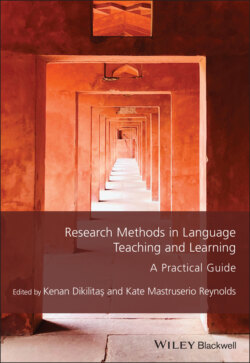Читать книгу Research Methods in Language Teaching and Learning - Группа авторов - Страница 24
The Need for More Qualitative Case Study Research Into LTSE Beliefs
ОглавлениеAs should be evident so far, interpretive qualitative case study has been underexploited in research into LTSE beliefs, particularly given the need for such research, highlighted above. Longitudinal qualitative case studies of preservice English language teachers, for example, following these teachers through their practicums and first years of teaching, much as Mulholland and Wallace (2001) did with a beginning science teacher, could provide valuable insights. Preservice English language teachers are not ignored in the LTSE beliefs literature (Wyatt, 2018a, 2018b); indeed, several studies set in Turkey have followed cohorts of preservice teachers into their beginning years. Individual case studies have not resulted from such research initiatives, however.
The individual case studies of English language teachers we do have (Wyatt, 2010b, 2013a) were both of in-service teachers adjusting to new and challenging situations, one switching from teaching Grade 9 to Grade 1, and the other moving from teaching a curriculum in which there was no group work in a school in which the students’ desks were in rows, to an entirely different situation in which group work was important. In many contexts, as curricula and teaching assignments change, in-service language teachers’ tasks can change quite dramatically; this can impact their LTSE beliefs in ways which case study research could investigate.
One point of interest in LTSE beliefs research is in how these beliefs intersect with language proficiency to shape teaching behavior (e.g., Wyatt & Dikilitaş, 2019).
However, the case studies above (Wyatt, 2010b, 2013a) shed little light on this issue, as they were of Omani English teachers largely secure in their use of the target language. In contrast, in contexts such as Korea and Vietnam (Hiver, 2013; Phan, 2015), limited language proficiency can unfortunately be a major issue for in-service teachers, eroding their self-confidence. Consequently, we need more LTSE beliefs case studies in such contexts, drawing on observational and interview data and providing “thick description” (Geertz, 1973) to bring the reader there.
